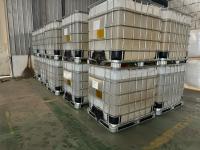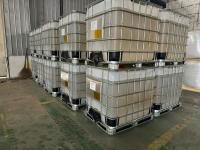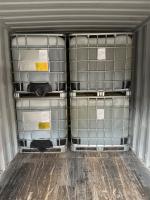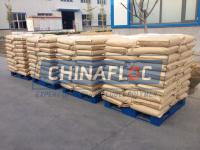Our Products
Product Center / Polyamine equivalent model of Floquat FL2273 can be replaced by Chinafloc

c, Floquat FL2273 belongs to the polyamine family, known for their strong charge density and excellent performance in destabilizing suspended particles. Its chemical composition includes low- to medium-molecular-weight polyamines derived from the reaction of amine-based compounds, making it highly effective in a broad pH range.
The main application of Floquat FL2273 is in clarification and solid-liquid separation processes in municipal, industrial, and process water systems. It serves as a primary coagulant or coagulant aid, depending on the application. This detailed explanation explores the main functions, benefits, and industries that utilize Floquat FL2273, highlighting its versatility and performance advantages across nearly 1,000 words.
1. Municipal Water and Wastewater Treatment
a. Raw Water Clarification
In municipal drinking water treatment facilities, Floquat FL2273 is employed as a primary coagulant for raw surface water drawn from rivers, lakes, or reservoirs. These waters often contain fine colloidal particles, algae, organic matter, silt, and turbidity. Traditional metal-based coagulants like alum or ferric sulfate are effective but often generate significant sludge volumes and increase downstream costs.
Floquat FL2273 provides an alternative or complementary approach:
-
Rapid neutralization of negatively charged particles
-
Formation of stronger, more compact flocs with improved settling
-
Reduction of chemical sludge volume
-
Improved filter run times due to cleaner influent to filtration units
b. Municipal Sewage Treatment
Municipal wastewater contains a mix of biological solids, organic material, and suspended matter. In the primary and secondary clarification stages, Floquat FL2273 enhances settling and removal of these contaminants.
In tertiary treatment, it plays a role in phosphorus removal, working alongside metal salts to precipitate phosphate compounds and assist in nutrient removal. It is also used for sludge thickening and dewatering, improving cake dryness and reducing disposal costs.
2. Industrial Wastewater Treatment
a. Textile and Dyeing Industry
In textile dyeing operations, wastewater often contains reactive, acid, or direct dyes, along with surfactants, starch, and auxiliary chemicals. These contaminants are resistant to biodegradation and need advanced chemical treatment.
Floquat FL2273, when applied as a primary coagulant:
-
Breaks dye-particle interactions and destabilizes the colloidal system
-
Promotes agglomeration of colored particles into easily removable flocs
-
Reduces color, COD (Chemical Oxygen Demand), and suspended solids
-
Works effectively across wide pH ranges, unlike some metal salts
When paired with anionic flocculants like polyacrylamide (PAM), Floquat FL2273 ensures complete clarification and high-efficiency color removal, enabling compliance with environmental regulations.
b. Paper and Pulp Industry
In pulp and paper production, large volumes of white water and process effluent contain:
-
Suspended fibers
-
Organic debris
-
Resins and pitch
Floquat FL2273 is used to:
-
Fix anionic trash and improve fiber retention
-
Clarify process water and enable water reuse
-
Improve sludge dewatering from treatment processes
Additionally, it helps reduce the consumption of alum or PAC (poly-aluminum chloride), leading to cost savings and improved sludge quality.
c. Chemical and Petrochemical Effluents
Many chemical industries release wastewater containing emulsified oils, fine solids, and surfactants. In petrochemical and refinery operations, oily wastewater and process water recycling are key concerns.
Floquat FL2273 is applied to:
-
Break oil-water emulsions
-
Improve phase separation
-
Coagulate emulsified and colloidal organic contaminants
This results in clearer water and reduced burden on downstream filtration or biological treatment units.
3. Mining and Mineral Processing
In mining, especially during the beneficiation of ores such as coal, gold, or bauxite, the water used in separation and flotation contains fine mineral slurries and tailings.
Floquat FL2273 is used to:
-
Flocculate fine mineral particles for sedimentation
-
Improve water recovery from tailings ponds
-
Aid in solid-liquid separation in thickeners and clarifiers
It enhances the sedimentation process, allowing the return of clean water to the system and minimizing tailings volume.
4. Oil and Gas Industry
a. Produced Water Treatment
During crude oil extraction, water (known as produced water) is co-produced with hydrocarbons. This water contains:
-
Residual oil
-
Suspended solids
-
Scale-forming compounds
Floquat FL2273 is used to clarify produced water before reinjection or disposal. It helps:
-
Remove dispersed oil droplets
-
Improve oil-water separation efficiency
-
Enhance flotation and sedimentation in separators
b. Refinery Wastewater
In refineries, various streams (such as sour water and cooling tower blowdown) contain emulsified contaminants. The addition of Floquat FL2273 aids in coagulation of these particles, improving the performance of DAF (Dissolved Air Flotation) units and gravity separators.
5. Sludge Conditioning and Dewatering
In both municipal and industrial sludge dewatering processes (belt filter press, centrifuge, or screw press), Floquat FL2273 is used as a pre-treatment to improve sludge filterability.
Benefits include:
-
Higher solids content in the sludge cake
-
Reduced polymer consumption when used with flocculants
-
Improved dewatering rate, reducing operational costs
6. Food and Beverage Industry
Floquat FL2273 is also applied in the treatment of wastewater generated from food processing operations, such as those involving:
-
Meat and poultry
-
Dairy processing
-
Beverage manufacturing
These wastewaters are typically high in BOD, suspended solids, and fats. Floquat FL2273:
-
Helps separate fats, oils, and greases (FOG)
-
Enhances sludge dewatering
-
Reduces organic load before biological treatment
7. Tannin and Heavy Metal Removal
In certain industrial scenarios, such as leather tanning or metal plating, Floquat FL2273 can be used in conjunction with inorganic coagulants for the removal of tannins and heavy metals. Its ability to destabilize complexed organic-metal contaminants makes it suitable for pre-treatment before filtration or chemical precipitation.





